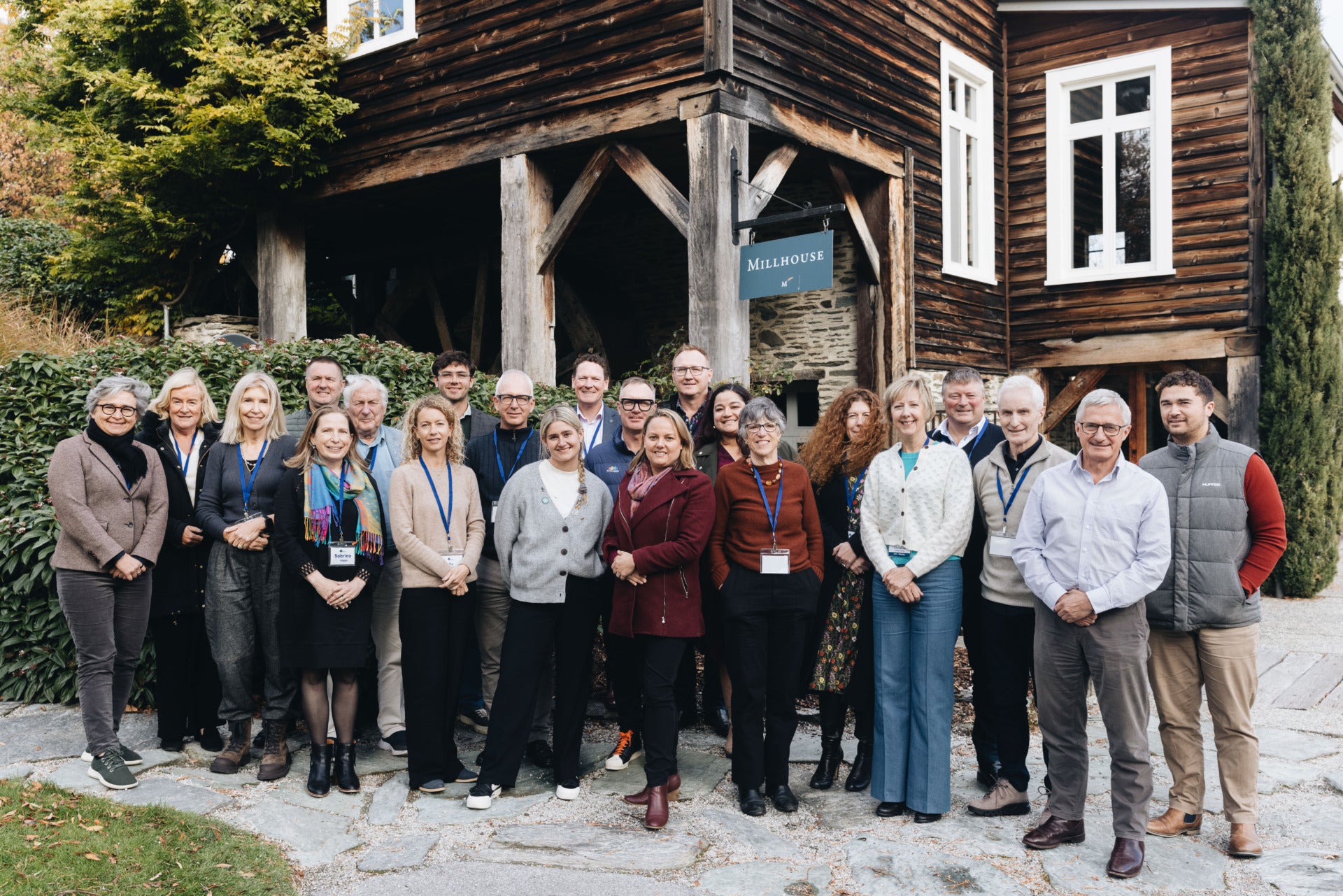While new business growth has contracted, Latino-owned enterprises are starting at three times the rate of the national average. Clearly unlocking the growth potential of Latino-owned businesses (LOBs) is key to advancing national economic growth. To explore and address the complexities of scaling LOBs, the Latinos and Society Program organized the Aspen Institute Forum on Latino Business Growth. The forum convened academics, government officials, Latino business owners, among other stakeholders from wide range of sectors, to discuss major barriers and devise high-impact solutions.
In advance of publishing ideas and solutions generated during the forum, a blog series explored important perspectives from venture capital, banking sector, public sector, intermediary organizations, academia, and startup entrepreneurship. The blog series was launched with a co-authored piece with the Latino Business Action Network (LBAN) at Stanford University to frame how and why Latino-owned business growth is pivotal to the US economy. For a glimpse into the issue, read Latino Business Can Save the Economy—If We Help It.
Each author in the series offered a glimpse from their unique sector perspective and asserted a range of viewpoints critical for creating an ecosystem that responds to and emboldens LOBs. The authors identified several opportunities:
Challenging conventional investment and lending norms. Latino businesses are typically smaller than non-Latino businesses and are therefore subject to variability in cash flow and often have limited collateral. Funding sources need to be willing to underwrite smaller loan sizes, look at complements and alternatives to conventional measures of credit, and appreciate long-term and short-term time horizons for capital investing.
Rightsizing assumptions about Latino entrepreneurs. Growth and investment in LOBs deserves an asset-based frame that rethinks “risk” and goes beyond helping an “underserved” segment of the business population. Narrative and perception about LOBs should instead emphasize the creativity, resourcefulness, and technical ability already within the Latino community.
Fostering the development of social capital. Informal transfer of knowledge and relationship building is valuable at all stages of business growth. Being a “good component” of a network, regardless of power or influence, as well as holding peers and leaders accountable, will facilitate the types of interactions necessary for expanding the growth calculus of LOBs.
Leveraging community anchor institutions. Universities can leverage intellectual, human, and financial capital to assist LOBs. They can serve as a source for technical training and advising that, complemented with the support of Community Development Financial Institutions (CDFIs), has the potential to transform the growth trajectory of LOBs and the economies in which they reside.
In addition to the unique sector perspectives offered by each author, a commonly articulated view was the importance of creating an ecosystem that highlights the Latino community’s value proposition as an economic driver — its youth, its size, and its ingenuity. A factor that impacts whether these traits are maximized is awareness and understanding, among a broad coalition of Latino and non-Latino stakeholders, that sustained growth and scale of LOBs pays dividends not only to individual entrepreneurs but to the economy as a whole. This is done through job creation (especially within young firms), sales, tax revenue, and gains from innovation.
Ecosystem improvements, as well as a greater understanding of how scaling LOBs can impact the broader economy, promises to unleash the true potential of this growth sector. This translates to more Latino unicorns and gazelles that generate $1 million or more in annual revenues and growth that could add $1.4 trillion to the US economy. The consequence of inaction, however, is stark. Limited growth of LOBs, amid rapid Latino population growth, bodes poorly for future US economic growth, wealth disparity, social disaffection, and civic life.
The Forum, as a vehicle for cross-sector discourse, also resulted in revelations for participants who are well steeped in the nuances of a particular aspect of the scaling dilemma. Authors as well as participants shared the wealth of knowledge they learned about the nature of LOBs. Their response did not exclusively target a Latino customer base, and did not disproportionately represent low-growth or scale industries. These new perspectives encouraged reflection about perceptions and the stratification of Latino-owned ventures.
In its totality, this series is a demonstration that contributions from across sectors and backgrounds are critical for developing a comprehensive understanding of and high-impact solutions for scaling LOBs. Ideas and recommendations generated from the forum will be published in a report to be released this November.
Sarah Alvarez is Senior Program Associate for the Aspen Institute Latinos and Society Program. This is the final piece in a series of posts on the Aspen Institute Forum on Latino Owned Business Growth. Participants from local and national economic and enterprise development and support organizations, Latino business owners, financial institutions, philanthropy, government and academia will share their perspectives on the challenges and solutions to scaling Latino owned businesses.


